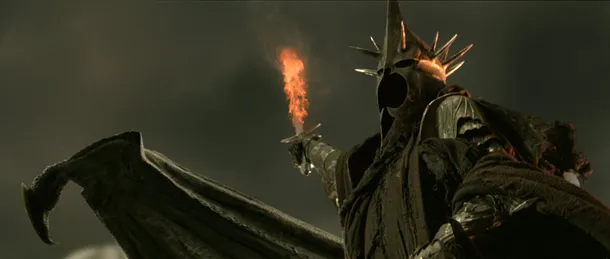Why We Never See Sauron Fight — And Why That’s His Darkest Power

He could have stepped out — but chose to remain in the shadows.
I’ve rewatched The Lord of the Rings countless times, and one question always lingers: Why doesn’t Sauron show up on the battlefield? He’s the ultimate villain — yet we never see him raise a sword, lead his armies, or even step outside his tower. And that’s exactly what makes him so terrifying.
Sauron did have a physical form. He wasn’t just a flaming eye. Back in the First and Second Ages, he was very much a presence — forging rings, battling elves, and commanding fear.

But by the Third Age, after losing the One Ring and barely surviving Numenor’s fall, he became something else: shadowy, unseen, and more dangerous than ever.
Rather than fight, Sauron chose strategy. He used the Palantír, Nazgul, and spies to manipulate events across Middle-earth — from Erebor to Gondor. His tower, Barad-dur, became his war room. He didn’t need to swing a sword; his power was control.
And that’s Tolkien’s genius. By keeping Sauron off-screen, he made him mythic. We fill in the blanks with our worst fears. He becomes a symbol of evil itself — subtle, creeping, hard to define.
.jpg)
Sauron doesn’t show up in battle. But maybe that’s the scariest kind of evil — the kind you can’t quite see, but feel everywhere.
